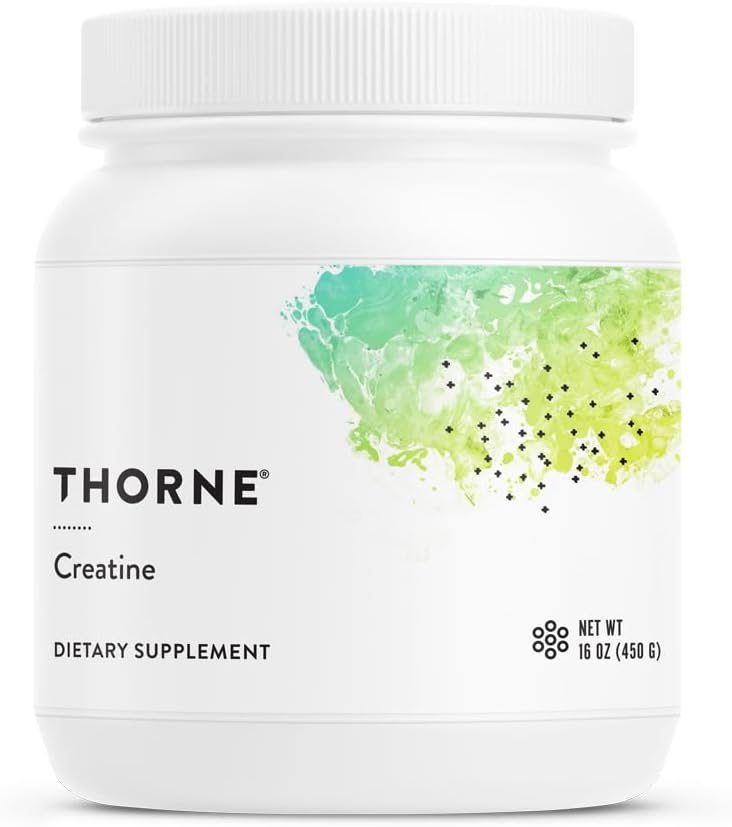






Price: $43.00
(as of Apr 11, 2025 06:27:33 UTC - Details)
The Ultimate Guide to Choosing the Best Creatine: What You Need to Know
Introduction
When it comes to fitness supplements, creatine stands out as one of the most popular and effective options available. Whether you're looking to boost your athletic performance, increase muscle mass, or enhance recovery, choosing the right creatine can make a significant difference. In this guide, we’ll explore what creatine is the best to take, addressing various aspects of this supplement to help you make an informed decision. From different types of creatine to how it works in your body, we’ll cover everything you need to know.
What is Creatine and How Does It Work?
Understanding Creatine
Creatine is a natural compound found in small amounts in certain foods and synthesized by our bodies. It's primarily stored in the muscles and used for energy during high-intensity exercises. But what creatine is the best to take for your specific needs? This is where we’ll delve deeper into the various forms available on the market.
Types of Creatine
There are several types of creatine, but the most common include:
- Creatine Monohydrate: This is the most researched and widely used form. It’s known for its effectiveness and affordability.
- Creatine Ethyl Ester: This version is said to be absorbed better by the body, but research is limited.
- Buffered Creatine: Often marketed as being less likely to cause stomach issues, but the evidence is mixed.
- Creatine Hydrochloride: This type is known for its solubility and may lead to less water retention.
For most people, creatine monohydrate is the best choice due to its proven benefits and cost-effectiveness.
Benefits of Taking Creatine
Enhanced Athletic Performance
One of the main reasons athletes and fitness enthusiasts choose to take creatine is its ability to enhance performance. Studies have shown that creatine can improve strength, increase muscle mass, and boost exercise performance, especially in high-intensity, short-duration activities like sprinting or weightlifting.
Muscle Growth
If you’re looking to gain muscle, creatine can help. It does this by increasing your muscles' water content, making them look fuller, and supporting muscle protein synthesis. This can lead to significant gains over time, especially when combined with resistance training.
Faster Recovery
Creatine may also play a role in recovery after intense workouts. By reducing muscle cell damage and inflammation, it can help you bounce back quicker and get back to your training routine.
How to Choose the Best Creatine for Your Needs
Consider Your Goals
Before you decide what creatine is the best to take, it’s essential to consider your fitness goals. Are you looking to build muscle, improve endurance, or enhance recovery? Each goal may require a slightly different approach to supplementation.
Read Reviews and Research
Always check customer reviews and reliable studies. Look for creatine brands that have a solid reputation and positive feedback from users. Transparency in ingredient sourcing and manufacturing processes is also crucial.
Check for Additives
Some creatine products come with added ingredients like sugars, flavors, or other performance enhancers. If you prefer a pure supplement, look for creatine monohydrate with minimal additives.
Dosage and Timing
How Much Creatine Should You Take?
The most common dosage for creatine is about 5 grams per day for maintenance. Some people choose to do a loading phase of around 20 grams for the first week, followed by the maintenance dose. However, starting with a lower dose can be a good option if you're concerned about stomach discomfort.
When is the Best Time to Take Creatine?
Timing can also play a role in how effective creatine is for you. Many people find it beneficial to take it post-workout when your muscles are primed to absorb nutrients. However, consistency is more important than timing, so find what works best for your routine.
Potential Side Effects
Is Creatine Safe?
Creatine is generally considered safe for most people when taken in appropriate amounts. However, some may experience side effects such as gastrointestinal discomfort, cramping, or water retention. If you have any pre-existing health conditions, it’s wise to consult with a healthcare professional before starting supplementation.
Myths About Creatine
There are several myths surrounding creatine, including fears of kidney damage or dehydration. Research has shown that creatine is safe for healthy individuals and does not negatively impact kidney function when used appropriately.
Conclusion
In conclusion, when it comes to choosing what creatine is the best to take, creatine monohydrate often emerges as the top choice for its proven benefits, affordability, and safety. By understanding the different types of creatine, their benefits, and how to use them effectively, you can make an informed decision that aligns with your fitness goals. Remember to prioritize quality, read reviews, and consider your specific needs. With the right creatine, you can enhance your performance, build muscle, and improve your recovery, helping you reach your fitness goals faster.
Muscle Mass: Creatine is an amino acid that promotes lean body mass and supports increases in muscle endurance, muscle capacity, and power output*
Cellular Energy Production: Creatine helps the cells of the body more efficiently create energy, thus benefiting exercise capacity*
Brain Function: Although creatine is known for its muscle-enhancing benefits, it has also been shown to support cognitive function*
NSF Certified for Sport: Tested for compliance with label claims and to ensure the absence of more than 200 substances banned by many major athletic organizations
Trusted: Thorne is chosen by champions and trusted by 100+ professional sports teams, a proud partner of U.S. National Teams, and the #1 recommended clinical brand by health-care practitioners
